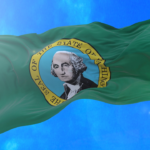On Nov. 5, Spokane residents made their voices heard with a landslide vote to make their city the eleventh jurisdiction in Washington since 2016 to embrace government transparency when they voted to amend its charter to require that public employee union contract negotiations be more open to the public.
Last December, Spokane County passed a similar resolution making it a policy that collective bargaining negotiations be done in a meeting observable to the public.
At this point, the only questions that remain are how long will it take to put the new provisions into effect and how much legal mischief will union attorneys attempt to push that date even farther down the road.
Will the overwhelming mandate from the public pressure union leaders to come out of the dark, or will they continue to fight tooth and nail to hide from the public while they ask for more of the taxpayer’s money?
Teamsters have a long, disturbing history of such bullying tactics.
In 2014, residents of Sequim, Shelton, Blaine, and Chelan gathered enough signatures to place a collective bargaining transparency measure on their local ballots. In each case, however, the city council denied the public a say in the matter after caving to union pressure.
Almost a year after passing Resolution N0 18-0950, Spokane County is preparing to hold its first open-to-the-public contract negotiations. But the union leaders on the other side of the table may have already tipped their hand by their actions in another Washington community.
In September 2016, working closely with the Freedom Foundation, Lincoln County became the first local jurisdiction in Washington to pass a resolution bringing the public into the bargaining process.
However, Teamsters Local 690, which represents many of the city’s employees, responded to Lincoln County’s resolution by accusing its commissioners of unfair labor practices. Freedom Foundation attorneys stepped in to represent the county pro bono, and we are winning. But the case is still unresolved.
The Freedom Foundation has worked with numerous governments across Washington to craft transparency legislation for their community. At least ten contract negotiations open to public observation have subsequently been completed under the new provisions.
Although none of those contracts were with the Teamsters, a three-year track record of incident-free open negotiations should effectively invalidate the union’s lame arguments against transparency. There have been no problems with “disruption,” “intimidation,” or any of the dire consequences’ unions predicted.
“…The public’s presence during negotiations didn’t affect the bargaining sessions.” — Pullman School Superintendent Dr. Bob Maxwell.
“Opening our meetings to the public seemed to bring the tone down, and I believe contributed to a quicker and more civil conclusion.” – Soap Lake Director Sunshine
“Open meetings are more transparent, more effective, and more efficient.”
“Teachers liked the idea of sitting in on negotiations.” – Curt Dotson Soap Lake school board
Clearly, the policy is a good idea the citizens of Washington want, but will the people and their representative’s triumph, or will big labor special interests hijack our democratic republic?
Local Governments Transparency Timeline
- Sept. 29, 2020 — Whatcom County proposed ordinance NO.______ to “increase community oversight and transparency…” It was voted on Oct. 13, 2020.
- Nov. 5, 2019 — Spokane City residents approved a ballot initiative to amend their charter to open their collective bargaining to the public.
- July 22, 2019 — Gig Harbor passes a resolution to conduct collective bargaining open to the public in person or video to the extent the law allows. (Later rescinded)
- May 8, 2019 — Kennewick School District Amended policy 5020, which guides their collective bargaining to take the position that the District prefers bargaining to be done publicly, but will defer to what the union wants.
- Feb. 27, 2019 — Centralia School District adopted a transparency policy to live stream and archive videos of their collective bargaining.
- Dec. 11, 2018 — Spokane County became the largest local jurisdiction to pass a policy opening their collective bargaining process to public observation. Commissioner Josh Kerns has an important video message to all elected officials: “Craft a resolution that fits your local government.”
- April. 23, 2018 — Soap Lake school district passed a resolution and has completed two contracts negotiations publicly.
- April. 23, 2018 —Royal school district passed a resolution making their contracts negotiations public.
- Nov. 7, 2017 — Kittitas County became the first local government to pass an ordinance opening their collective bargaining process to public observation. They also became the second local government to successfully conclude a contract negotiation in public, with an AFSCME-affiliated bargaining unit.
- July 11, 2017 — Tukwila School Board passed a resolution to open their collective bargaining meetings to the public. (Later rescinded)
- March 6, 2017 — Ferry County passed a resolution similar to Lincoln County. Despite receiving a letter from an AFSCME-affiliated union stating they would refuse to negotiate in public, a new contract has taken place without incident.
- Jan. 25, 2017 — The Pullman School Board voted to open their collective bargaining meetings to public observation. Since then, they have successfully negotiated four WEA-affiliated contracts publicly. (Post pandemic they are live zooming their meetings)
- Sept. 7, 2016 — Lincoln County became the first local government to pass a resolution to open its collective bargaining contracts to the public.







